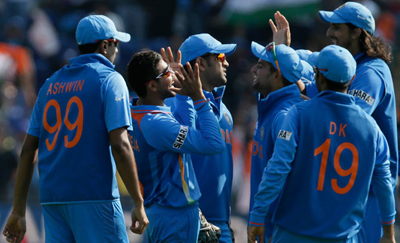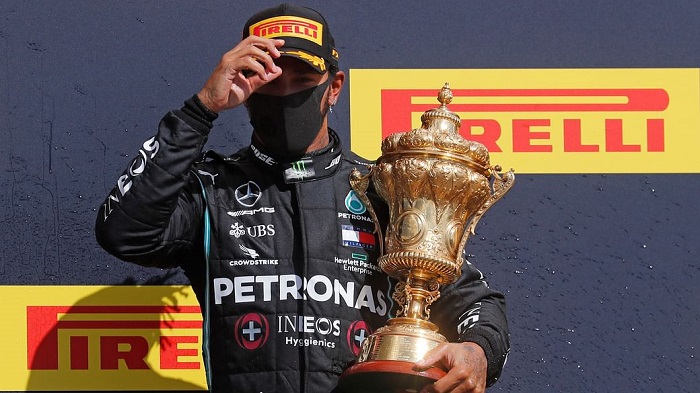
India are on a roll and it’s going to take more than a beat Pakistan to stop them.
On a cold, windy day at Birmingham, India won the toss and chose to field first. It was a decision that surprised the experts – the pitch looked like it was slow and would get slower as the match would go on. Basically put, run-scoring would not be easy.
But India’s bowlers made the most of the rain interruptions – they kept their concentration even as the Pakistan batsmen lost their focus, to keep the opposition to 165 runs. The revised target according to the D/L method is 168, which was then further reduced to a 22-over game now and India’s target was 102.
Shikhar Dhawan (48) and Rohit Sharma (18) put on 58 runs for the first wicket and that was all India needed to do to snuff out Pakistan’s hopes.
India had already won Group B, Pakistan were already eliminated. So in the eyes of many this was a match about pride. But for India it was actually much more. It was about keeping the momentum going. So far, the conditions have favoured India – but it doesn’t take long for that to change and the confidence to drop.
So it wasn’t about bragging rights – it was really about keeping a good thing going. Asad Shafiq replaces Imran Farhat for Pakistan, which has lost both its group games, while India is unchanged after wins over South Africa and West Indies.
And once again Dhoni’s bowler’s delivered for him.
The rain interruptions – once again something that Dhoni and Fletcher had factored into their calculations saw the match being reduced to 40 overs. Batting second gave India the advantage of knowing exactly what they would need when they came out to bat.
Pakistan didn’t start off too well. They lost Nasir Jamshed in the third over to Bhuvneshwar Kumar, who continues to get India early breakthroughs. But then Kamran Akmal (21) and Mohammad Hafeez (27) took the total to 50 before a stoppage due to rain.
The teams came back on before too long but Hafeez seemed less ready than most. He edged the first ball after the break to Dhoni. Replays later revealed that there was movement behind the umpire but the batsman didn’t put up his hand to stop the bowler, nor did he move away from the stumps.
Hafeez had a point but he didn’t make his move in time. His wicket was quickly followed by Kamran’s wicket as Pakistan were reduced to 56-3. They needed to rebuild and they did that through Asad Shafiq (41) and skipper Misbah-ul-Haq (22) but even then, they never looked like taking the match away from India.
Umar Amin chipped in with 27 towards the end but Pakistan just didn’t look like they were ever forcing the pace or making India do anything different.
Bhuvneshwar got two wickets upfront (2-19) and then the likes of R Ashwin (2-35) and Ravindra Jadeja (2-30) ensured that the game never got away from the Indians. The bowling has once again continued to surprise and it has been backed up by some superb fielding too.
When India came out to bat, they needed to keep wickets in hand and they did that with a fair degree of ease. It’s fair to say that both, Rohit and Dhawan gave their wickets away. Pakistan did not earn them.
India would have perhaps liked Rohit to score a few more runs ahead of the semi-final on Thursday. In the end though it turned out to be one of the most one-sided India-Pakistan matches in recent times.
The India-Pakistan rivalry is fast becoming a myth and somehow Pakistan need to find some young talent to make their way back into the reckoning.







Comments
Add new comment